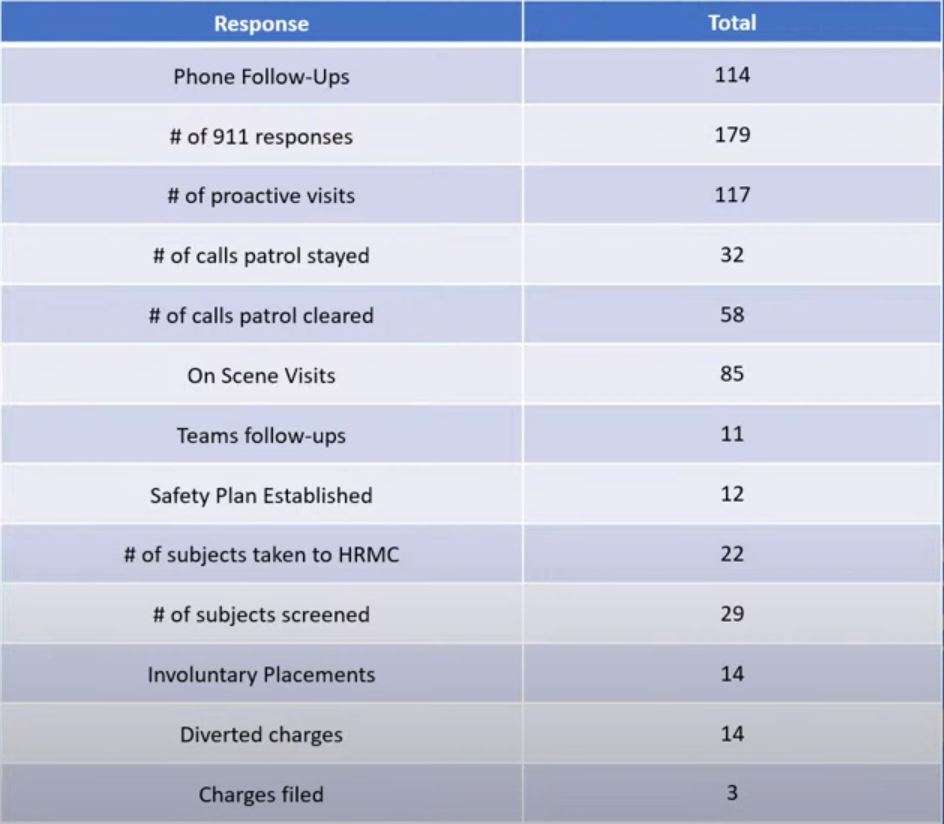
By NICK GOSNELL
Hutch Post
HUTCHINSON, Kan. — Hutchinson Police Chief Jeff Hooper gave a report to the City Council Tuesday on how the Crisis Response Team has worked in 2021.
"The Crisis Response Team is really designed to pair law enforcement officers with professionals in the field, mental health professionals and in Hutchinson, what we've also paired with are substance abuse professionals to be able to respond together into the field," Hooper said. "The officers become specially trained in identifying and working with people who are suffering from a mental health situation or substance abuse. The mental health professionals and substance abuse professionals learn from our officers on safety and tactical positioning and how to approach those situations. Together, as a team, the desire is to be able to defuse and de-escalate."
The Crisis Response Team wants to see people get the help they need.
"People that suffer from mental illness, we don't want them in our criminal justice system," Hooper said. "Working with Lisa Gleason and the Stepping Up council, that's one of the things that we've really started to focus on. The Mayor sits on that particular council. We had a lot of programs kind of on the back end to deal with people in mental health coming out of the jail and reintegrating them, but what we've never had in this community before was a program where we could divert people so they wouldn't end up in the criminal justice system in the first place."
The situation in Hutchinson regarding crisis calls is improving.
"After they initiated and were able to make contact with individuals that had been in crisis, they had a rolling list of ten people that they were following up on every day," Hooper said. "As soon as they would get one member off their list stabilized, connected with services, another person in our community would hop on. It's truly an overwhelming situation. Now, come the first of this year, that list is four to five people, maybe six on any given day. That's a manageable number. Our team is actively working four to five people in our community right now that are still in crisis and are saving lives. That's much more manageable than the overwhelming number we had."
Also, the diversion of cases seems to be having a positive effect.
"Fourteen people over the last nine months that the team was active last year, would have been arrested and would have been in our county jail, but instead we diverted those charges and kept them out of the criminal justice system," Hooper said. "You think, well 14 doesn't sound like that much, but in reality, I think that 14 number is huge. That's 14 people that would have had a criminal record, but now they are connected with services and they are productive members of our community. That's potentially 14 lives saved in our community and I don't know how you can put a price tag on success like that."
Crisis Response was also able to clear uniformed officers off of calls 58 times last year, which allows them to go on to their next calls and saves the community in the long run.





